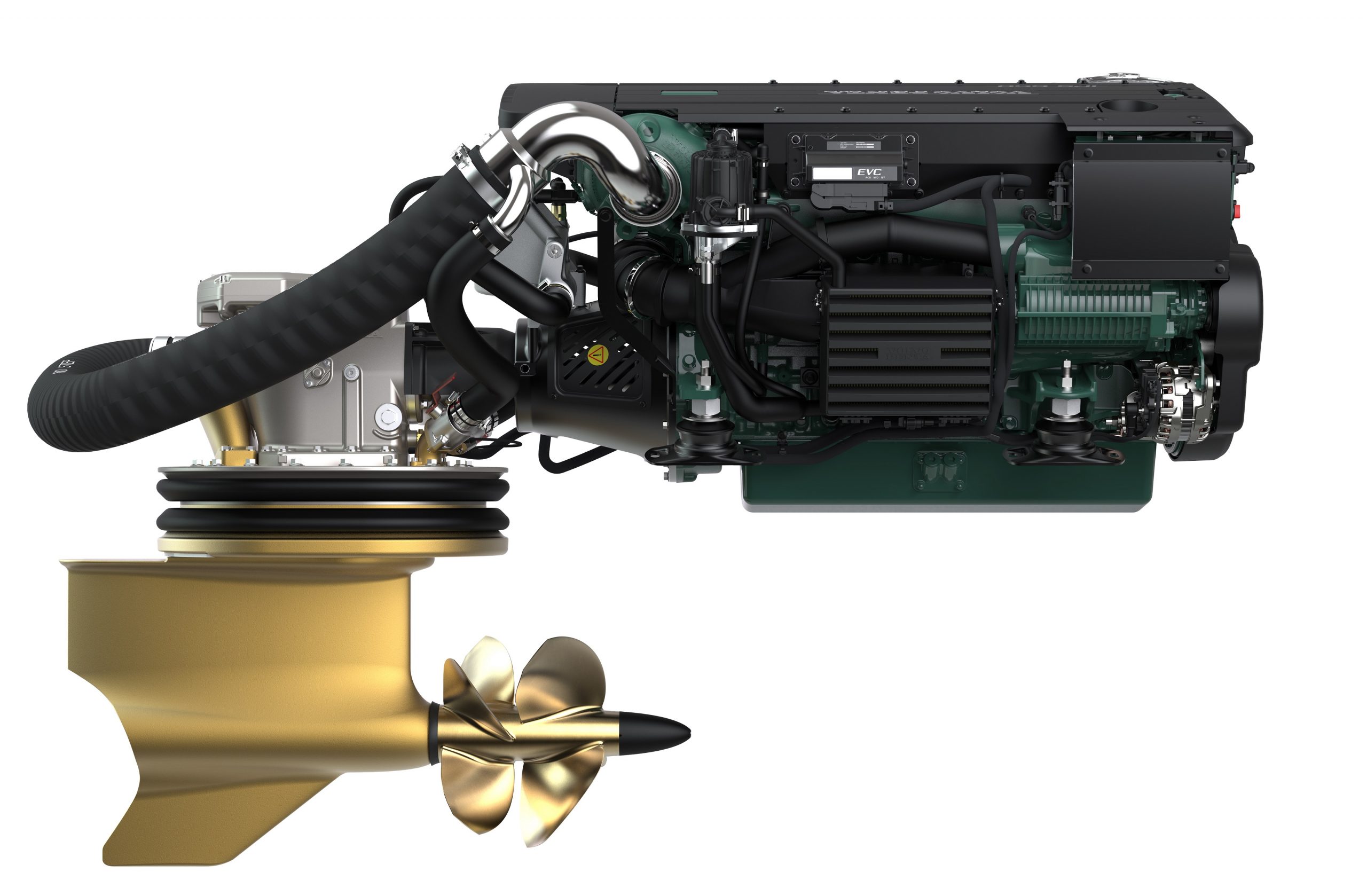In what is a win for both customers and the environment, Volvo Penta has hit a milestone with 30,000 Inboard Performance System (IPS) installations across marine sectors. Certainly, the IPS units deliver a unique user experience. It offers up to 30% reduced fuel consumption and 30% less CO2 emissions compared to traditional inboard shafts. Environmental care has been a core value at Volvo Penta since 1972, and the company continues striving for high energy efficiency and reduced emissions across its product range.
VOLVO PENTA IPS
Volvo Penta IPS first launched for the marine sector in 2005. The system’s design has forward-facing, twin counter-rotating propellers that sit below the hull for significant “grip” of the water. Individually steerable IPS drives are linked to the onboard Joystick Docking function. The joystick makes docking – considered one of the most stressful aspects of boating – easier. Volvo Penta IPS includes a range of benefits that vary depending on the type of installation. When compared to traditional inboard shaft installations, Volvo Penta IPS provides:
- 40% longer cruising range
- 20% higher top speed
- Up to 30% reduced fuel consumption
- Up to 30% less CO2 emissions
- 50% lower perceived noise
- More onboard space
The company committed to the World Wildlife Fund for Nature’s Climate Savers program in 2014. With 30,000 IPS units installed, and all with a decrease of up to 30% in fuel consumption and a typical reduction of 15-20% – sometimes up to 30% – of CO2, the company is proud of its environmental innovation.
“Finding ways to reduce fuel consumption and emissions has been an objective of ours for many years and is as a priority across our product range,” said Johan Inden, head of Volvo Penta’s marine segment. “We strive to continue to improve today’s innovative technology, while in parallel explore future possibilities towards significantly reduced or zero emissions.”
IPS SUCCESSES
Volvo Penta has seen previous environmental success within the marine industry. Eight Njord Offshore vessels, powered by Volvo Penta IPS, saved on average a total of 20% in fuel and 8,375 tons of CO2, over 250,000 hours of operation. The Amer 84 superyacht, meanwhile, saw a 45% reduction in fuel consumption during a 100-mile journey through the Mediterranean compared to similarly sized yachts fitted with traditional inboard shaft installation. This remarkable result was due to the craft’s lightweight design and the fitment of efficient and compact Volvo Penta IPS which, together, slashed the weight of the yacht by 20 tonnes – the weight of four elephants. Volvo Penta has additionally begun incorporating a circular economy approach to manufacturing. The company gives new life to IPS drivelines through remanufacturing processes.
“Our Volvo Penta IPS range already offers a reduced impact on the environment, through its increased fuel efficiency and reduced emissions,” said Inden. “Selecting a remanufactured IPS unit only enhances the sustainability of the full lifecycle of the boat, including maintenance and repair.”
VOLVO PENTA GOING FORWARD
The company, however, is not yet finished. Volvo Penta’s Environmental Director, Cecilia Gunnarsson, knows more can still be done.
“As we celebrate this milestone, we also remind ourselves that supporting our environment is a continuous commitment,” said Gunnarsson. “This is why we have worked to make our systems compatible with renewable fuels such as HVO. Additionally, we have our IMO III package for IPS, for the marine sector, which meets the strictest global emission standards.”
RELATED
Click the link below for more great technology news!

